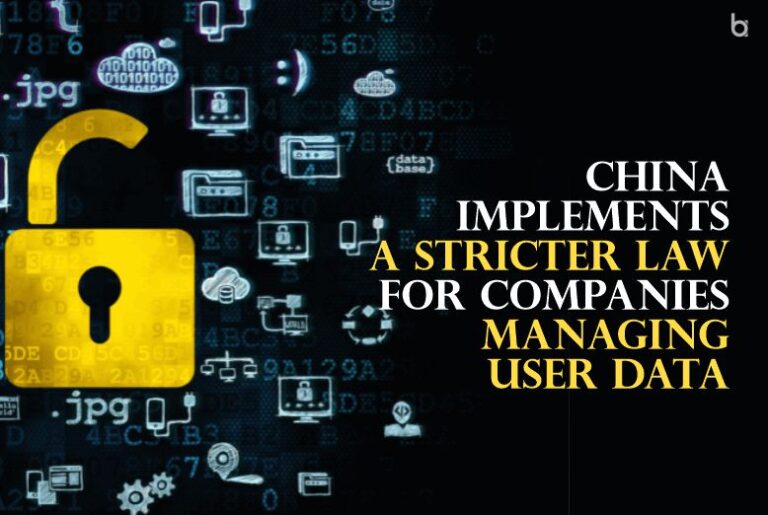Key Highlights:
- The Personal Information Protection Law has been adopted by the country’s legislature
- Companies that break the rules will have to face fines of up to 50 million yuan
- The law would help China’s government to position the world’s second-largest economy as a big data leader
Establishing Strict Guidelines
User Data indicates any personal data or other data or information obtained by the company or on behalf of the company from users. China has approved legislation establishing stricter guidelines for how companies handle user data, a move to advance its campaign to restrict big tech’s influence.
The country’s legislature has approved the Personal Information Protection Law, the China Central Television reported on recently. The new legislation’s details were not immediately available, but previous draughts required companies to obtain user approval before collecting, using, or sharing information, as well as provide a method for users to opt-out. Companies that contravene the restrictions can face fines of up to 50 million yuan (S$10.5 million) or 5% of their annual revenue.
Sensitive Data to be Stored in China
The new law promises to further hem in China’s tech giants, who are already subject to a tangle of regulations governing everything from how they negotiate deals and price services to how they manage the massive amounts of data collected on a daily basis. Along with the previous legislation, the privacy rules have the potential to severely limit the number of online commerce services that rely on customized data to target customers and promote their wares.
Drafts of the most recent personal data legislation would tighten rules on user profiles that companies keep and the recommendations that apps can make. Mr. Zang Tiewei, a spokesperson for a legislative commission, told in a press conference in Beijing last week that any decisions made automatically in the apps must be “fair and just.” They also imposed restrictions on the movement of personal data across borders and mandated any sensitive data to be stored in China.
Investing Money in Data Centers

President Xi Jinping has been cracking down on China’s most powerful tech companies, such as Alibaba Group Holdings, Tencent Holdings, and Didi Global, in order to maintain the country’s hold over society. The government is taking steps to address consumers’ concerns about the gradual erosion of their privacy as tech companies make significant breakthroughs in the use of tools such as facial recognition and big data.
The country’s legislature passed a law in June that gave Mr. Xi the authority to shut down or fine tech companies that obstruct the way of his efforts to control the enormous swaths of data they generate. The initiatives came as some US politicians called for the breaking up of Internet behemoths, like Facebook and Alphabet, and as European authorities prioritize anti-trust enforcement and gave users more control over data.
That law, which takes effect on September 1, would also assist China’s government in its efforts to make the world’s second-largest economy a leader in big data. Beijing has been investing money in data centers and other digital infrastructure to make electronic information a national economic driver and help shore up the legitimacy of the ruling Communist Party.
Also Read:- Fintech Companies Member of Centralized Payment System: RTGS and NEFT



